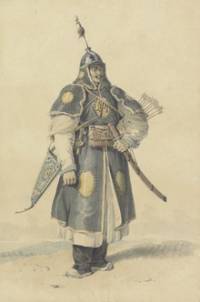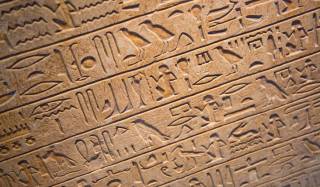Table of Contents
Ideal of History
“And it was then I saw that our choices were not our own; that like a great valley the future stretches out before us and we can walk but a little from the path the weight of ages has carved.”
Jo.
The Ideal of History consists of the aspects of Nostalgia and Progress. It deals with themes of past and future - what is keenly awaited, what is wistfully remembered and what is fearfully dreaded. Such Muses appreciate nuanced development and refinement, as well as absurd futurity; supercharged beyond all sensibility.
Muses of History have power over themes of coziness and novelty, the promise of a better world and established custom. They believe that the course of the Narrative is governed by characters' perceptions of the past and future. Hence, when a Muse of History wants to use their Skills to manipulate the Narrative of a Vignette, they must act to change those perceptions.
Strife

The Strife Skill governs uses of powers to attack others. With History, a Muse could undermine their foes' confidence in their traditions and command structures, or blind them with dazzling flashes of exotic energies.
Some examples of applications at different power levels are:
- Weak: A Muse might strike their steel sword against a primitive Stone One, causing it to break.
- Moderate: A Muse might rouse unmotivated allies by convincing them that attack is truly imminent.
- Strong: A Muse might appeal to their similarities to a legendary warlord to legitimise their command of a unit of soldiers.
- Exceptional: A Muse might overthrow the monarch by producing documents that undermine the legitimacy of their system of rule.
Subvert

The Subvert Skill governs stealth, duplicity, and forgery. With History, a Muse could manipulate people's allegiance to old symbols, supplanting their own, or hack their way past outdated defenses with ease.
Some examples of applications at different power levels are:
- Weak: A Muse might bash a new-fangled anti-hacking laser lock, causing it to fall off.
- Moderate: A Muse might use an experimental cloaking device to sneak into an alien mothership.
- Strong: A Muse might forge historical writing to lend support to a new school of philosophy.
- Exceptional: A Muse might orate on the future of a nation and rewrite the trajectory of a people.
Seek

The Seek Skill governs uses of powers to gather information. With History, a Muse could ferret out useful bits of folklore and old stories about a place, or predict how a story is likely to go without outside intervention.
Some examples of applications at different power levels are:
- Weak: A Muse might ask around to learn the perceived history of some individual.
- Moderate: A Muse might do a survey to learn what a group believe their future to be.
- Strong: A Muse might hack an alien database to learn a history hidden from civilisation and known only to few.
- Exceptional: A Muse might read the bones to learn what will happen in the future of the story.
Sculpt

The Sculpt Skill governs uses of powers to modify objects. With History, a Muse could borrow designs from the past or future, or change the perception of an item to be advanced or primitive than it truly is.
Some examples of applications at different power levels are:
- Weak: A Muse might stick LEDs on equipment to make it appear more advanced than it actually is.
- Moderate: A Muse might make a set of old fashioned tribal costumes for their allies.
- Strong: A Muse might create something rare and sought-after through a risky engineering project in an experimental lab.
- Exceptional: A Muse might cause a spaceship work with a humble pen.